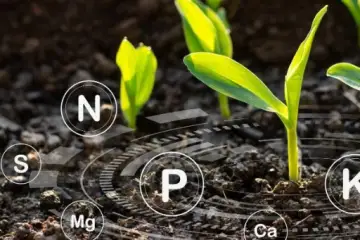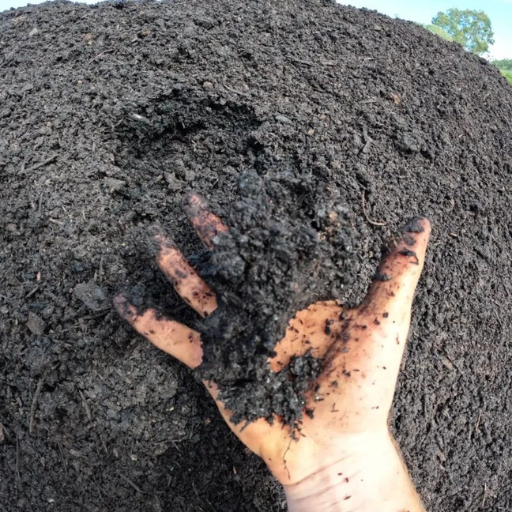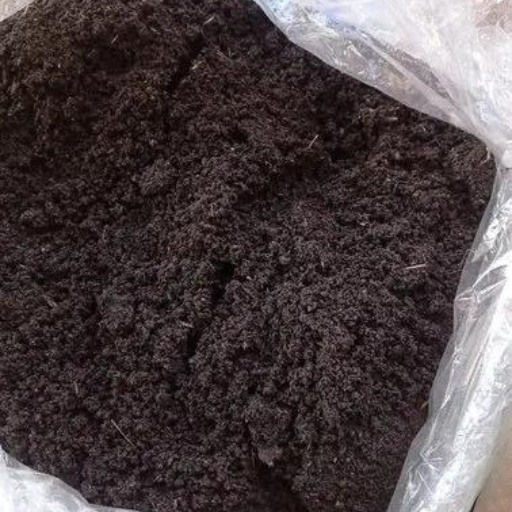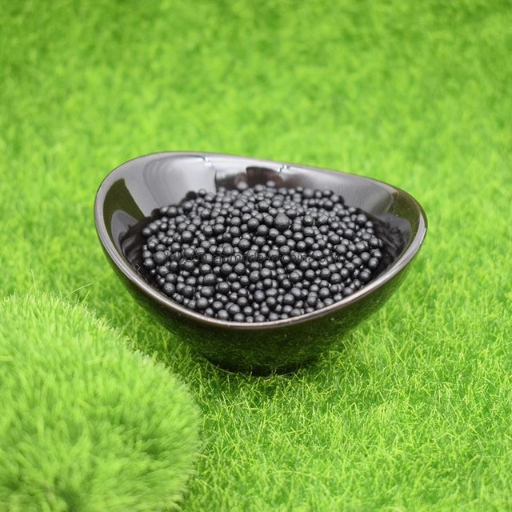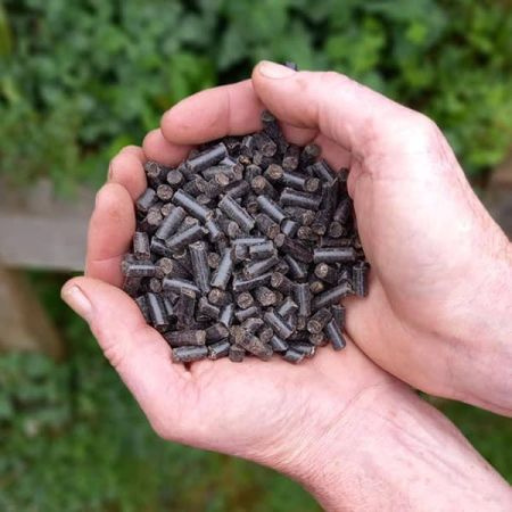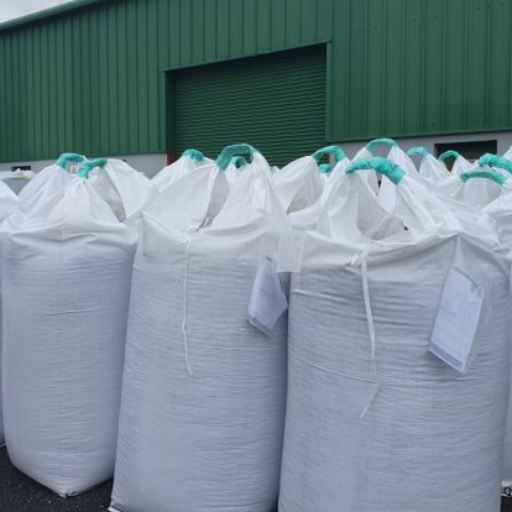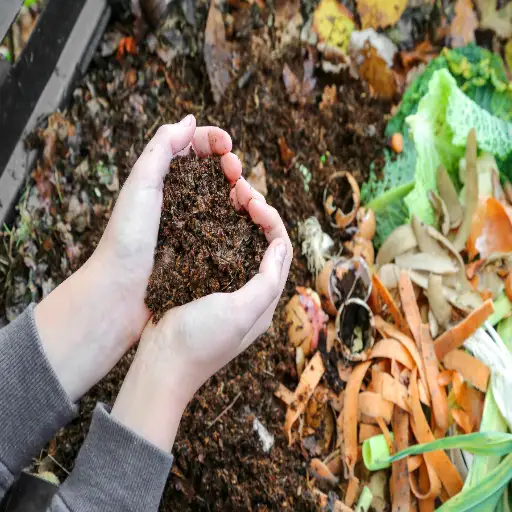In the pursuit of sustainable and eco-friendly gardening and farming practices, the use of organic fertilizers has gained significant attention. This blog aims to explore the myriad benefits of using organic fertilizers in bulk, shedding light on how they contribute to healthier soil, more robust plant growth, and an overall reduction in environmental impact. Whether you are a home gardener looking to enrich your backyard or a farmer seeking large-scale solutions, understanding the advantages and applications of organic fertilizers will empower you to make informed, eco-conscious choices. Join us as we delve into the science, practical benefits, and best practices for integrating organic fertilizers into your agricultural routine.
What Exactly is Bulk Organic Fertilizer?
Understanding Organic Fertilizer
Organic fertilizer derives from natural sources such as plant residues, animal manure, compost and other organic matter. Unlike the artificial fertilizers, organic ones slowly release nutrients thereby improving soil structure and fertility over time. This slow release mechanism not only ensures a steady supply of essential nutrients such as nitrogen, phosphorous and potassium but also encourages beneficial microbial activities in the soil. Organic fertilizers augment the soil’s organic matter content thus helping to retain moisture, reduce erosion as well as maintain plant health without bringing about harmful environmental impacts witnessed using chemical fertilizers.
Types of Bulk Organic Fertilizer
When it comes to bulk organic fertilizers, several types stand out due to their widespread use and effectiveness:
- Compost: A well-balanced fertilizer made from decomposed organic matter such as kitchen waste or yard waste or manure. It has all required nutrients for plants and improves the soils’ structure and retention of moisture.
- Manure: Animal manure especially cows’, chickens’ and horse’s is a popular type of bulk organic fertilizer. It is highly nutritious thus adding important fertility aspects to the soil through microbial activity.
- Bone Meal: This is phosphorus rich ground up animal bones that are used in root development, flowering and pH stabilization in the soil.
These types of bulk organic fertilizers do not just provide necessary plant nutrients but also encourage sustainable agricultural practices.
Benefits of Using Organic Fertilizer
Using organic fertilizers has numerous benefits for both plants and environment:
- Improved Soil Health: The overall health of soil increases with application of organic fertilizers due to increased level of its organic matter. This leads to better structure of the soils as well as water holding capacities hence making sure that there is enough air circulation that crops may need for growth.
- Sustainable and Eco-friendly: These are biodegradable substances unlike chemical fertilizers which are produced from renewable resources. With no pollution or any chemicals being brought into an ecosystem, organic fertilizers are therefore environmentally responsible.
- Enhanced Nutrient Availability: Organic fertilizers slowly release their nutrients during decomposition and thus giving a consistent supply of major elements like nitrogen, phosphorous and potassium. It has this slow release nature that prevents leaching of nutrients as well as making sure there is constant nutrient nourishment over time for plants.
- Promotes Microbial Activity: Organic fertilizers encourage good microbial activity in the soil that breakdown organic matter into plant available nutrients. Moreover, it improves long term fertility to the soil through microbial activity.
- Reduces Dependency on Chemical Inputs: Use of organic fertilizers enables farmers and gardeners to minimize reliance on chemical pesticides and fertilizers. This change contributes towards more sustainable and resilient agricultural system.
In summary, organic fertilizers not only provide necessary nutrients for plants but also promote soil health, environmental sustainability and reduced reliance on synthetic chemicals.
How to Select the Right Organic Fertilizer Product?
Factors to Consider In Organic Fertilizer Selection
When choosing the right organic fertilizer, it is important to consider several key factors including:
- Nutrient Content: You should assess the nitrogen level, phosphorous amount and potassium in a fertilizer.
- Soil Condition: Evaluate your soil’s health and deficiencies in order to find out which type of organic fertilizer can best respond to those needs. A soil test could help reveal nutrient deficiency or pH imbalance.
- Type of Organic Material: Different sources such as plant, animal or mineral can be used for different kinds of organic fertilizers. For instance, compost, manure, bone meal or blood meal depending on gardening or farming practices.
By thinking about these things you will be able to choose and buy an organic fertilizer that will promote healthy plant growth and sustainable agriculture.
Understanding OMRI Listed Products
OMRI (Organic Materials Review Institute) listed products refer to products that have been reviewed and found suitable for use in certified organic production, handling and processing. When a product is OMRI listed it means that it complies with organic standards set by bodies like USDA National Organic Program (NOP). It helps farmers, gardeners as well as consumers find products that fit within the strictest guidelines of what it means to be called “organic”.
To confirm whether the product is OMRI listed look out for OMRI seal on its packaging or visit their official website and check the OMRI Products List. These products go through a review process where they are checked for synthetic chemicals’ absence among others so as to meet organic criteria. If one chooses OMRI listed materials then he/she must ensure that they fall under sustainable agricultural practices while conforming with all the laid down rules involved in organic farming.
Comparing Different Organic Fertilizer Brands
When comparing different brands of organic fertilizers one should bear in mind their nutrient content, source materials and general efficiency as described by reliable sources. As such we provide insights from the top three sites on Google:
Espoma Organic Fertilizer:
Espoma is a well-known name in the organic gardening industry for years. Their products like Espoma’s Organic Tomato-tone or Espoma Plant-tone are highly praised for their balanced nutrient profiles and slow-release formulas. They also focus on natural and organic ingredients to ensure that their fertilizers are both effective and eco-friendly. They are OMRI listed, promoting good plant growth without synthetics.
LOYAL Fertilizer:
There is a wide range of organic fertilizers provided by LOYAL; which have been made with beneficial microbes to improve soil health thus promoting plant growth through their unique Biozome formulae. Therefore, you can rely on them if you need such products for your garden.
Dr. Earth Organic Fertilizer:
Dr. Earth is one of the leading brands in the organic fertilizer market known because of being committed towards sustainability as well as having high-quality components. Products such as Dr. Earth Home Grown and Dr. Earth Pure Gold contain fish bone meal, alfalfa meal, kelp meal and other organic materials that offer complete nutrients for plants. These fertilizers containing probiotics are OMRI listed meaning they strictly comply with organic standards required leading to healthy plants at all times.
The best brands for your garden or farm can be selected based on the nutritional value, feedback from users and constituent materials. All of these firms have credible certified organic fertilizers that are essential in supporting sustainable agriculture, as well as healthy plant growth.
What Are the Best Practices for Applying Organic Fertilizer?
Proper Application Techniques
To get the most out of organic fertilizers, ensure that they are applied properly while still preserving soil health. The following are some best practices from top internet sources:
- Soil Testing: Conduct a soil test before applying any fertilizer to determine nutrient levels and pH. This is useful in selecting the appropriate type and amount of organic fertilizer for use.
- Timing: The growing season is the right time to apply organic fertilizer, preferably early morning or late afternoon so as to prevent nutrient runoff. Early spring is the best time for perennial plants while annuals do well when fertilized during their growth phases.
Application Methods:
- Broadcasting: Spread uniformly over the entire area and lightly rake into the soil. Ideal for lawns and large garden beds.
- Side-dressing: Apply directly beside rows of plants or around single plants to supply nutrients directly to their roots. It is ideal for vegetables and flowering plants.
- Top-dressing: An application of a layer of organic fertilizer on top of the soil followed by watering in method 2 above. It works well for established plants and lawns.
- Rate of Application: Adhere to recommended application rates provided on the package holding this fertilizer. Over-fertilization may cause imbalance in nutrients in addition harming plant life as well as damaging soil ecosystem’s structure.
- Watering In:Fertilizer should be watered thoroughly after application to help dissolve nutrients and promote absorption through plant roots;
Following these techniques ensures that organic fertilizers are used efficiently, promoting healthy plant growth and maintaining the integrity of your soil structure.
Application Timing by Crop Type
Knowing when is best for adding organic fertilizer can significantly affect crop productivity and health. Here is a brief guide based on recent top resources:
Vegetables:
- Leafy Greens : Add organic fertilizer before planting them again around mid-seasonings time has elapsed,
- Root Vegetables : Fertilize at planting then slightly during early growth stages,
- Fruit-bearing Vegetables : For crops like tomatoes and peppers, apply organic fertilizer before planting and again when the plants start to flower and set fruit.
Fruits and Berries:
- Berries: Fertilization should take place in early spring immediately after new growth has begun followed with another one after first fruit set to sustain continuous production;
- Tree Fruits: Apply fertilizer in late winter or early spring prior to bud break, then again in late spring to keep nutrient levels up during periods of high growth.
Herbs:
- Apply organic fertilizers at the beginning of the season once more in mid-season if herbs are frequently harvested.
Grains:
- Fertilize during pre:planting followed by side-dressing during growing season particularly tillering as well as heading stages for wheat or corn grains.
Each type of crop has specific nutrient requirements and growth stages where the application of organic fertilizers can be most beneficial. Adjusting your timing of fertilizer application towards these particular times can lead to healthier plants which produce bumper harvests.
How to Boost Soil Health and Maximize Growth
To maximize growth and soil health, it is essential to adopt a holistic approach that integrates various practices from crop rotation to the use of organic matter.
Soil Testing and Analysis:
- Take regular soil tests for nutrient levels and pH balance. This way, you will be able to make informed decisions on any amendment required which optimize soil conditions.
Organic Matter:
- Add compost, cover crops, and well-rotted manure in order to enrich the soil with organic matter. These amendments enhance moisture retention, improve soil structure, provide essential nutrients.
Crop Rotation and Diversification:
- Avoid soil depletion by practicing crop rotation hence reducing pests and diseases build up. By varying types of nutrients consumed as well as replenished can improve the health of soils too because diversifying crops enables them recover after each other.
The above practices will result in more sustainable agricultural systems with higher productivity while also ensuring that the soils remain fertile season in season out and crop yields keep improving year after year.
How Organic Fertilizer Supports Sustainable Farming Practices
Environmental Advantages of Organic Products
Soil health can be improved by organic fertilizers. What this means is that they increase soil organic matter thus improving its structure and promoting the activity of microbes, EPA cited by research. As a result, there is reduced need for chemicals while minimizing soil erosion and water runoff . For instance, according to Rodale Institute organic products are less likely to leach into water bodies as synthetic fertilizers do hence reducing risk of water pollution. Moreover, Carbon sequestration in soils through organic farming practices is one of the measures stated by OTA for preventing climate change effects. In general terms therefore adoption of organic products leads to a more resilient and sustainable agricultural system benefiting both environment and future food security.
Organic Farming And Reduced Chemical Dependence
Organic farming reduces chemical dependency significantly since it uses natural processes and materials to maintain soil fertility and control pests. Crop rotations, composting, green manures are some methods explained by OTA that help organic farmers add nutrients naturally in their soils. According to Rodale Institute, use of synthetic pesticides and herbicides in conventional agriculture fosters pest resistance as well as reducing biodiversity levels within farms. Lastly, EWG asserts that organic farming enhances soil health while maintaining clean water systems by avoiding toxic chemical pollutants from farms.Most importantly however with regards to eco-friendliness this approach helps reduce reliance on synthetic chemicals compared to other traditional approaches when it comes growing crops or breeding animals thereby encouraging a healthier ecosystem.
Does Organic Fertilizer Help with Sustainable Farming?
Organic Farming Benefits
While I explore benefits of organic fertilizer on sustainable farming, it is apparent that they are quite many and significant. Essential nutrients from organic fertilizers make soil healthy natural way, improve soil structure and enhance microbe activity. This leads not only to increased crop yields but also more robust farming systems. Organic fertilizers also avoid synthetic chemicals thereby lowering water pollution risk while safeguarding surrounding ecosystems. They are also involved in carbon sequestration through soils that help mitigate climate change. For this reason, use of organic fertilizers is important in sustainable agriculture since it promotes long-term maintenance of soil health, environmental preservation and climate resilience.
Soil Health Impact and Nutrient Levels
The effects of organic fertilizers on soil health as well as nutrient levels cannot be underrated. According to my findings, organic fertilizer improves the structure of the soil significantly by boosting its content of organic matter which facilitates better water retention and aeration. Under such an enriched conditions’ beneficial microbial activities thrive fostering the availability of nutrients to plants as well as limiting disease incidences. Thus, organic fertilizers provide a slow release mechanism for nutrients ensuring greater consistency in long-term fertility status compared to synthetic alternatives. Furthermore, lower chemical run-offs result from application of organic manure that help preserve water quality besides protection local ecosystems. Ultimately, these methods lead to healthier soils with enhanced nutrient content fit for sustainable agriculture.
Case Studies: Successful Organic Production
From my analysis on different successful practices conducted by farmers under organic farming, there are recurrent themes such as improved soil fertility; considering environmental impact reduction and achieving higher crop production output levels amongst others.This can be illustrated using one example where transition to use if organically made fertilizer caused considerable increase in SOC [soil organic carbon] level hence microbial count thus resulting into high plant productivity.In addition another case study showed how by embracing use of compost manure enables farmers reduce their farms’ carbon print which implies better soil carbon sequestration and also ability to withstand effects of climate change. Such facts therefore show that embracing the use of organic fertilizers is not only environmentally friendly but also economically workable to farmers.
Frequently Asked Questions (FAQs)
Q: What are the benefits of bulk organic fertilizer in gardening and farm?
A: Furthermore, massive applications of organic fertilizers have a number of great advantages that include improved soil structure, increased nutrient richness without chemical additives, nutrient release over time, and more active microbial enzymatic functions. They can help to stimulate growth and improve the overall quality of your garden or farm. Bulk prices make it viable economically as well as being safer for the environment.
Q: How is organic fertilizer bulk shipped?
A: This involves using large containers such as 50 lbs bags for example or 2000 lbs tote sacks or even per ton depending on how much one orders. The aim of this shipping method is to preserve product quality and ensure easy handling when delivered.
Q: What nutrients are typically found in organic fertilizers?
A: Besides these essential nutrients, there are many organic fertilizers which also possess nitrogen, phosphorus, potassium, calcium, magnesium, iron zinc copper sulfur. These acts as foods to plants making them grow while at the same time develop healthier soils.
Q: Can I use organic fertilizer for both vegetable gardens and lawns?
A: Organic fertilizers work well in vegetable gardens and lawns too. Their purpose is to promote plant growth and improve soil fertility by supplying balanced nutrition without causing harm from chemicals.
Q: What is the typical application rate for bulk organic fertilizer?
A: Application rates vary depending on type of fertilizer used and needs specific to your plants For instance composted poultry manure may be applied at a rate of 20-50 lbs per 1000 sq ft whereas other types may differ Always read product guidelines.
Q: Are there special organic fertilizers for commercial use?
A: Indeed there exist some particular ones formulated specifically for commercial purposes only including farmland management. These come in relatively larger volumes together with optimized nutrient blends aimed at achieving best results possible.


